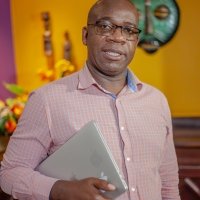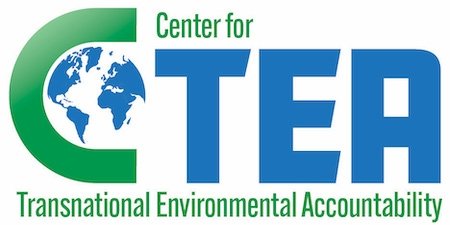China’s Critical Mineral Investments in Africa
Submit a question
The urgency of the climate crisis has accelerated the global demand for minerals to fuel the clean energy transition in renewables, electric vehicles and more. This push has put China’s involvement in critical mineral mining and refining in the Global South, especially on the African continent, in the spotlight. Globally, China controls 85-95% of this important mineral supply chain. From the colonial period to today, extractive mineral industries in African countries, like the DRC, South Africa and Zimbabwe, have exacted a high price on local communities in places where social and environmental safeguards are lacking or not enforced.
The newly formed Critical Minerals Accountability Alliance is a network of advocates and NGOs united around a mission to design and advance advocacy tactics throughout the critical minerals supply chain on the African continent. Their work will range from documentation of environmental and human rights harms to strategic litigation, rulemaking, and capacity building.
This Wilson Center panel will feature Jingjing Zhang (Center for Transnational Environmental Accountability); Claude Kabemba (Southern Africa Resource Watch); Emmanuel Umpula Nkumba (African Resources Watch); and Mutuso Dhliwayo, (Zimbabwe Environmental Law Association). The panelist will highlight stories on the impacts of Chinese overseas investment in the critical minerals sector in Africa. They also will discuss potential strategies to ensure the protection of the affected communities and ecosystems.
Speaker Highlights
Claude Kabemba
There are no bad or good investors in Africa. The issue of China is spoken in the geostrategic manner, but when you follow the work we do, we’ve monitored dozens of Western companies; we’ve monitored dozens of Chinese companies; we’ve also monitored dozens of African companies. All of them. They behave the same.
The poorest communities in Africa are mining communities...Africa needs to build its own defensive mechanism to protect itself against Western and Chinese extractivism. The Chinese control the value chain of these extractions. But the story that we have not been told is that most Chinese mining companies were bought them from Western companies. They also bought the active and passive problems: environmental, human rights, and so forth. The West must lead and ensure that China does not repeat the mistake it made.
The energy transition in Africa is not just about access to energy. For us, the energy transition is about rebuilding Africa’s economic structure, and economic transformation. We can build new economies out of that.
Emmanuel Umpala Nkumba
In the DRC, Western companies started selling their mines to Chinese companies in 2007. At that time, the relationship between China and the West was good, and they decided to sell their shares to the Chinese, not just for money, but to step away from taking responsibility for human rights problems that were already happening on the ground.
Now, the DRC is producing around more than 100,000 tons of cobalt, and more than 2,500,000 tons of copper, which has created more negative impacts to communities. Pollution means people can’t grow food, they get sick and sometimes lose their land. Communities also have told us about child labor which is a consequence of poverty. Yes, we admit that the Congolese government is not doing anything to protect [these communities], and they have these responsibilities. But Chinese and other mining companies are trying to get more benefits. They don’t like to share profit with communities.
In this transition of minerals, we don’t need to see Africa as a reservoir of minerals where people will go and just take raw materials and make profits here. What we need to have is a win-win contract, localizing the transformation of minerals and production of battery components to add value to our minerals. We also need to support laws which give us access to information, and to protect human rights defenders and whistleblowers in their work in the DRC.
Mutuso Dhliwayo
We, civil society organizations, try to make sure that there's transparency and accountability in terms of the contracts that are negotiated. We hope China can understand those challenges that are associated with its investments. It's not that we are against its investment, but we are advocating for them to be more responsible and improve in terms of their investments. Their investment is critical for us: the parliament of Zimbabwe, a brand-new airport which has been upgraded...were all built with Chinese investment. So, it's not all doom and gloom. There are opportunities.
Everyone talks about critical mineral mining as economic development, a benefit, but communities don’t see benefit, all they see are costs from mining: environmental pollution, involuntary displacement, and resettlement without compensation. They don’t have an EV, they do not even have energy access, but people are talking about decarbonizing the energy sector. As people pointed out, these minerals are just mined and shipped somewhere.
In terms of international guidelines, people being relocated for mining operations should not leave people in a worse-off position but a better off position. Yet we are not seeing that: When Chinese mining operations come in the communities are not consulted or provided access to information, and there are also some challenges with the lack of grievance mechanisms. We are happy that recently the Chinese Chamber of Commerce has developed some communication and consultation guidelines. We hope that this will be able to provide access to remedy to the communities that are affected by these mining activities.
Jingjing Zhang
Critical minerals have critical meanings to different players. For industrialized nations for greater powers, such as the US, Canada, Europe, and China, these countries need critical minerals for their economic development as well as their energy transition from fossil fuels to renewable energy. Those minerals are critical for people working on climate change, because critical minerals are needed for renewable energy. But for the communities – are those minerals critical? Not necessarily, because what's critical for them is: their land, their livelihoods, clean water, and clean air. Those are critical for those communities where we’re seeing large-scale mining projects from China and the West.
Chinese companies have brought business models or behaviors rooted in China’s business environment abroad. For example, one private Chinese mining company that received the highest penalty in China after tailing collapse killed people in Fujian Province is now expanding globally in the DRC, Zimbabwe and South Africa. Today, the company is taking advantage of the weak regulatory regimes in these host countries and their mining is causing more damage than economic benefit to host country local communities.
Chinese government, business associations, and civil society organizations are making efforts to green the Belt and Road Initiative. The Chinese government’s first guidelines were in 2012 but were too soft to hold overseas Chinese companies accountable for their behavior. Chinese companies are not required to disclose their ESG information outside of China, so with no information transparency there is no check on their poor environmental performance.
Moderator

Panelists




Hosted By

China Environment Forum
China’s global footprint isn’t just an economic one, it’s an environmental one. From BRI investments in Africa and Asia to its growing presence in Latin America, understanding China’s motivations, who stands to gain - and who stands to lose - is critical to informing smart US foreign policy. Read more


Environmental Change and Security Program
The Environmental Change and Security Program (ECSP) explores the connections between environmental change, health, and population dynamics and their links to conflict, human insecurity, and foreign policy. Read more


Africa Program
The Africa Program works to address the most critical issues facing Africa and US-Africa relations, build mutually beneficial US-Africa relations, and enhance knowledge and understanding about Africa in the United States. The Program achieves its mission through in-depth research and analyses, public discussion, working groups, and briefings that bring together policymakers, practitioners, and subject matter experts to analyze and offer practical options for tackling key challenges in Africa and in US-Africa relations. Read more

